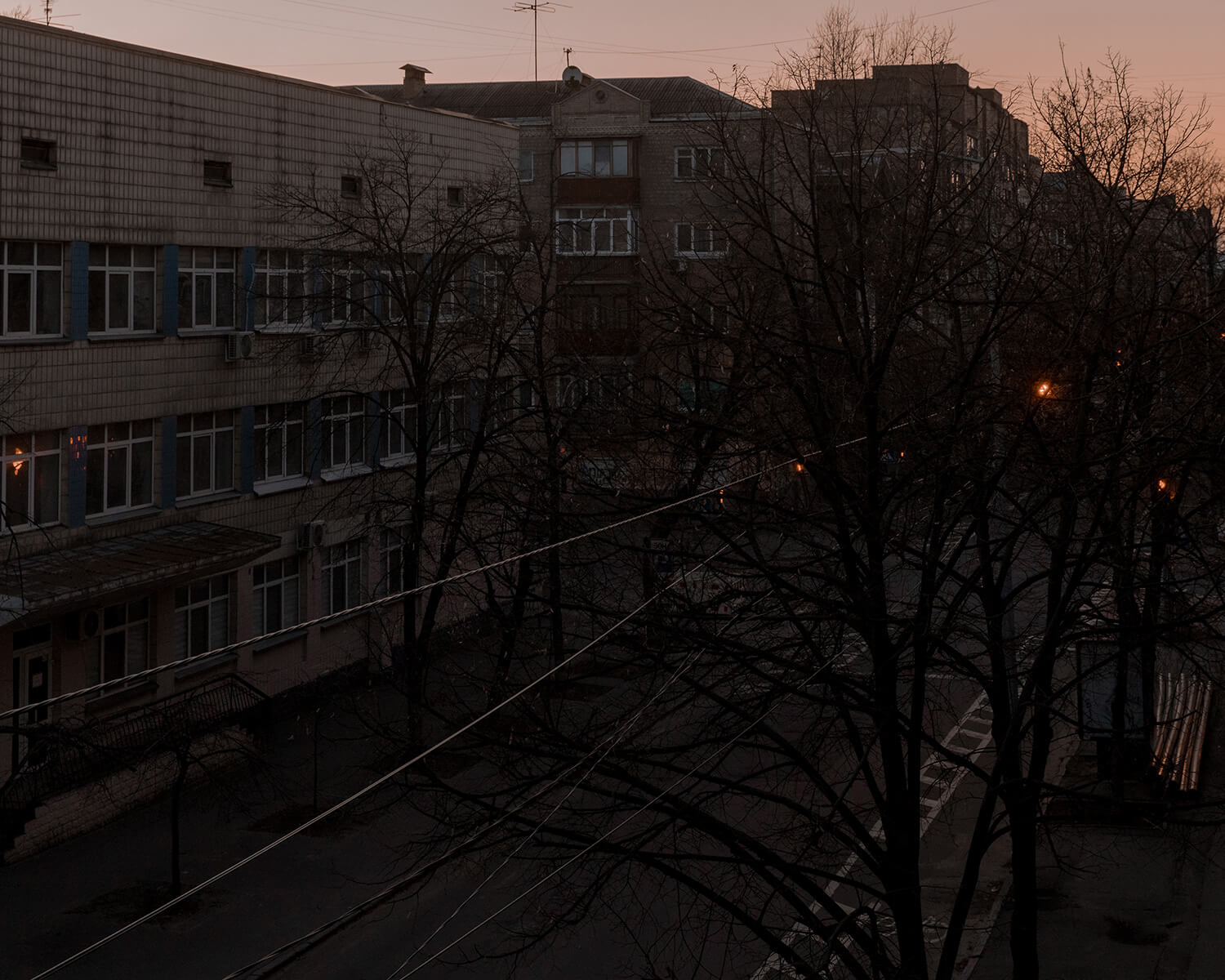All cities in Eastern Europe are alike – though perhaps not at first glance. The architectures vary – secession style here, glass-fronted skyscrapers there, tons of concrete elsewhere. Streets spreading between buildings with the delicacy of capillaries or splitting districts like merciless, thick arteries. Street signs written using Cyrillic or Latin lettering – the latter's position revealed in diacritics: a hooked appendage below an “a” or “s”, a line above a “z” or “c” or else an “l” with a line through it or an accent over an “e”.
The similarities are harder to grasp. The same light – acute and cool, the same wintery skies – greyness, moments before sundown stained with dirty pinks. The same horizons marked with concrete tower blocks. Then there are the faces – so pretty in the summers, so tired and indistinct come wintertimes. Seemingly imbued with an omnipresent greyness.
We look at such photos and feel disoriented. We did of course know that wars have not ended, but they were not meant to happen to people just like us, in cities with names which end in “-ów”, homes where the bins lurk beneath kitchen sinks while jars full of pickles huddle down dark basements.
It is hard not to think about all this and hard not to feel a sense of guilt overall.
This story is not about us. This is not our suffering, not our cities on fire, not our parents cowering beneath bombed out bridges. Not our cushions scattered across sidewalks by the force of exploding artillery shells. This thing we are feeling – is that empathy or egocentrism?
Perhaps this is immaterial – this story, let us repeat, is not about us. It is about them.
About a young mother dragging a bag of plastic rattles down into a bomb shelter, and other mothers trying to use those toy rattles to drown out the borderline cold.
About a couple cuddling together as they say goodbye at a train station in Kyiv – maybe they'll meet again, though they'll never see this city the way it once was...
About men carrying stretchers through biting snows – one wearing a uniform and army helmet, the other wearing sunglasses and running shoes, absurdly ill-equipped even if we know equipment is in short supply.
About the person they are carrying on their stretcher and that second stretcher, covered with a sheet of flower-patterned fabric, a pair of feet sticking out one end.
About those twins wearing quilted jackets, with the awkward gait of sprouting teenagers getting ready to break hearts in time.
About an elderly woman who is fleeing Irpin', alone, without any belongings, using nordic walking sticks to steady herself as she crosses uneven territories.
Then another elderly woman, her grey hair covered with a shawl, a yellow armband on one sleeve, clenching her fists and lifting her face towards the sun.
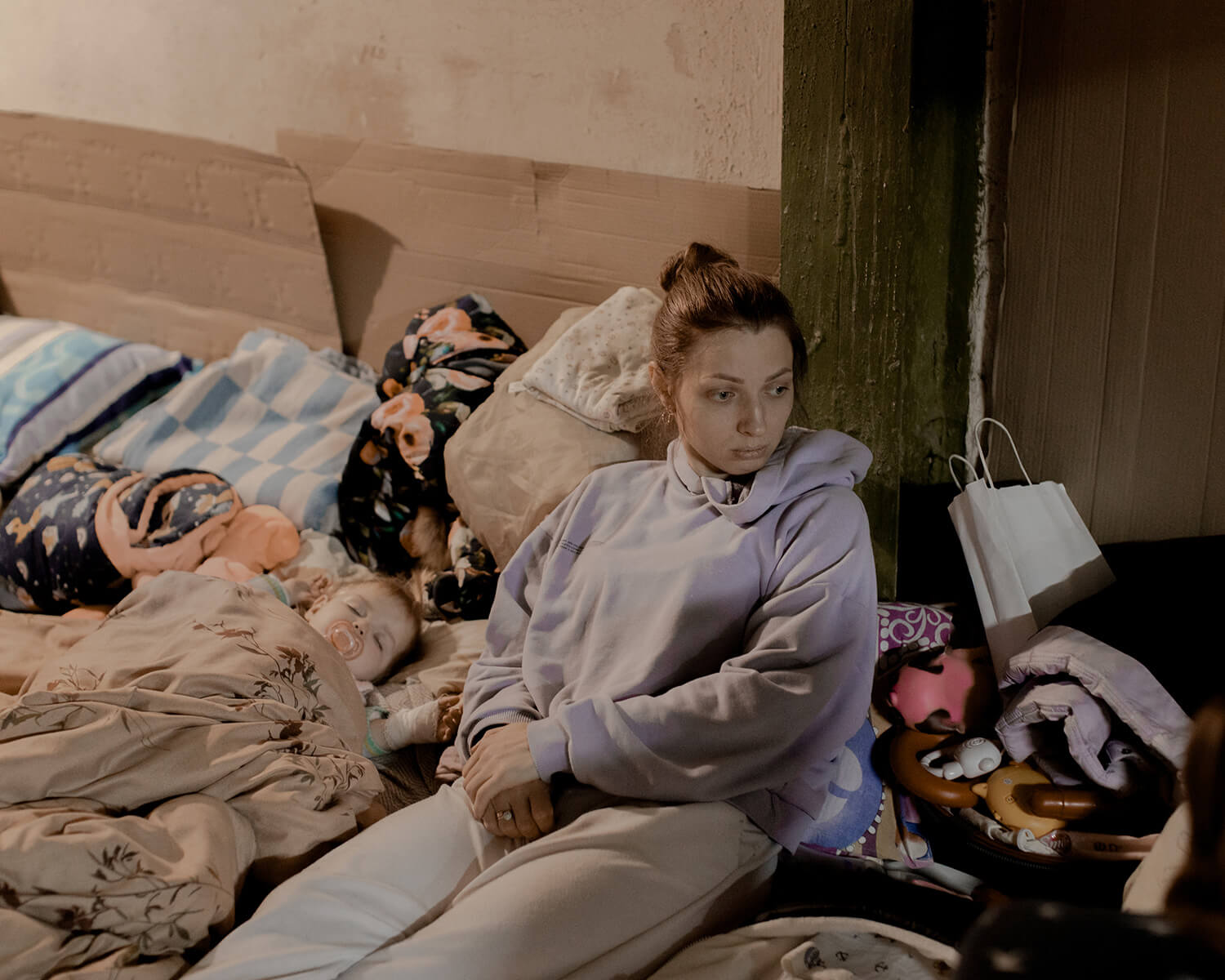
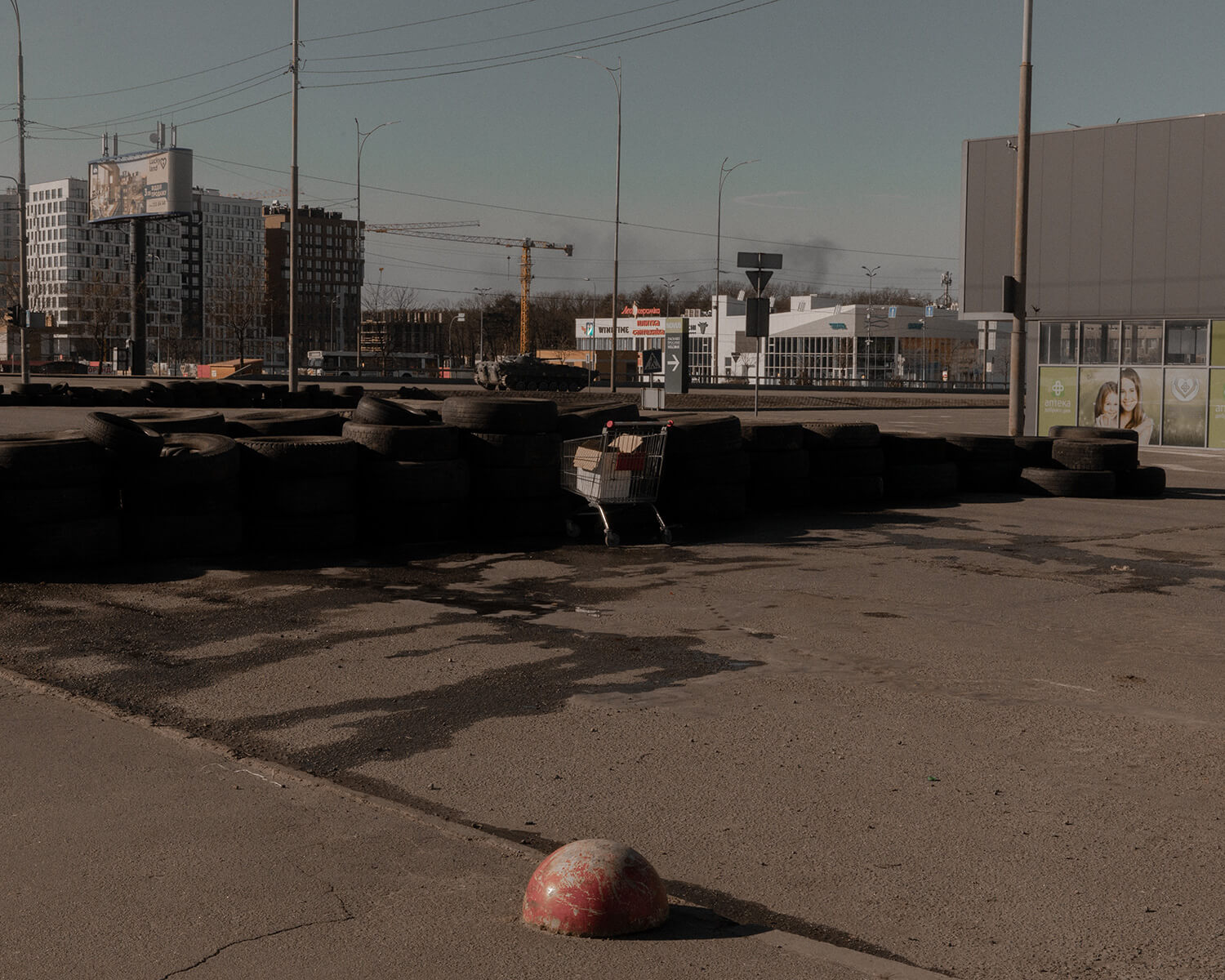
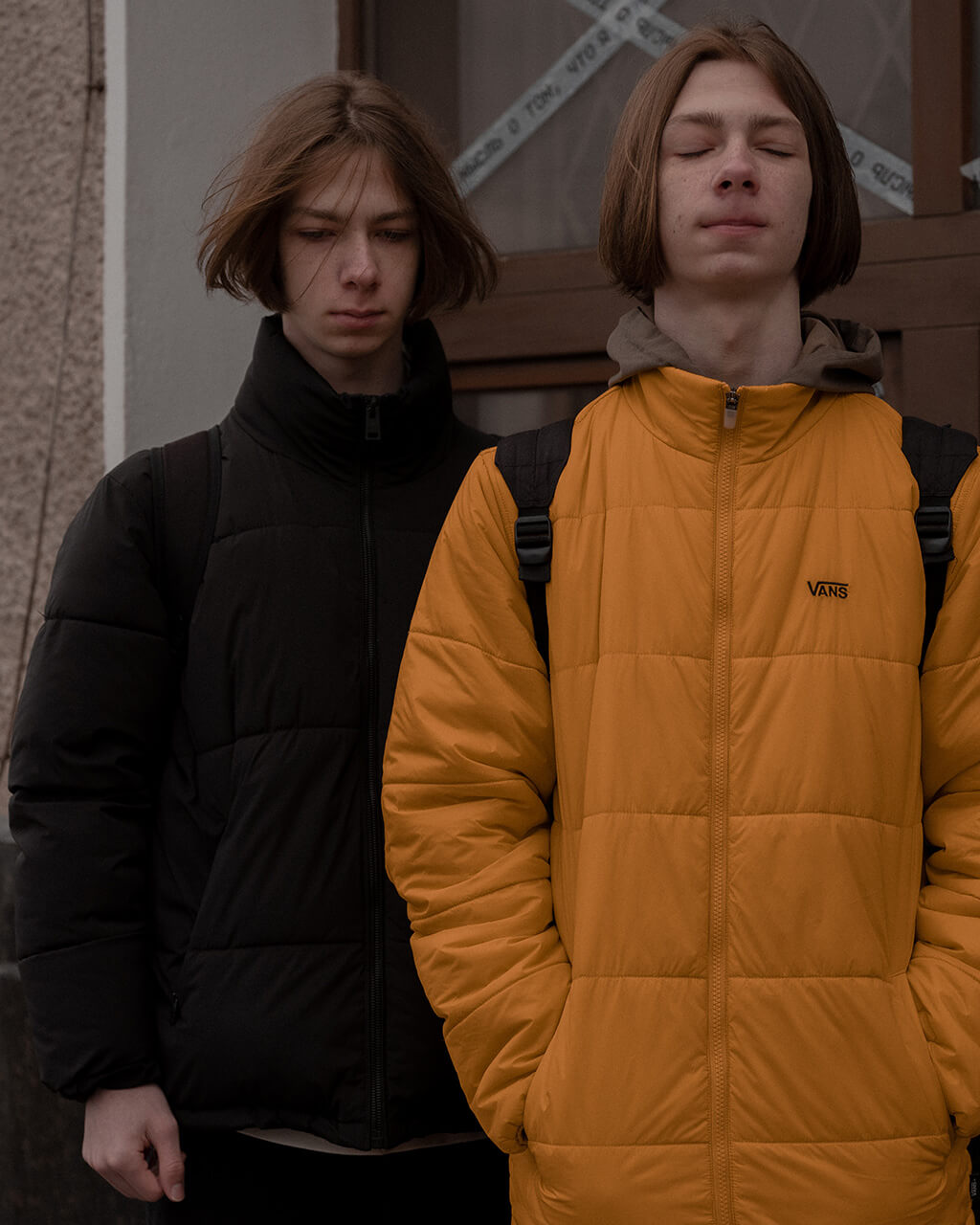
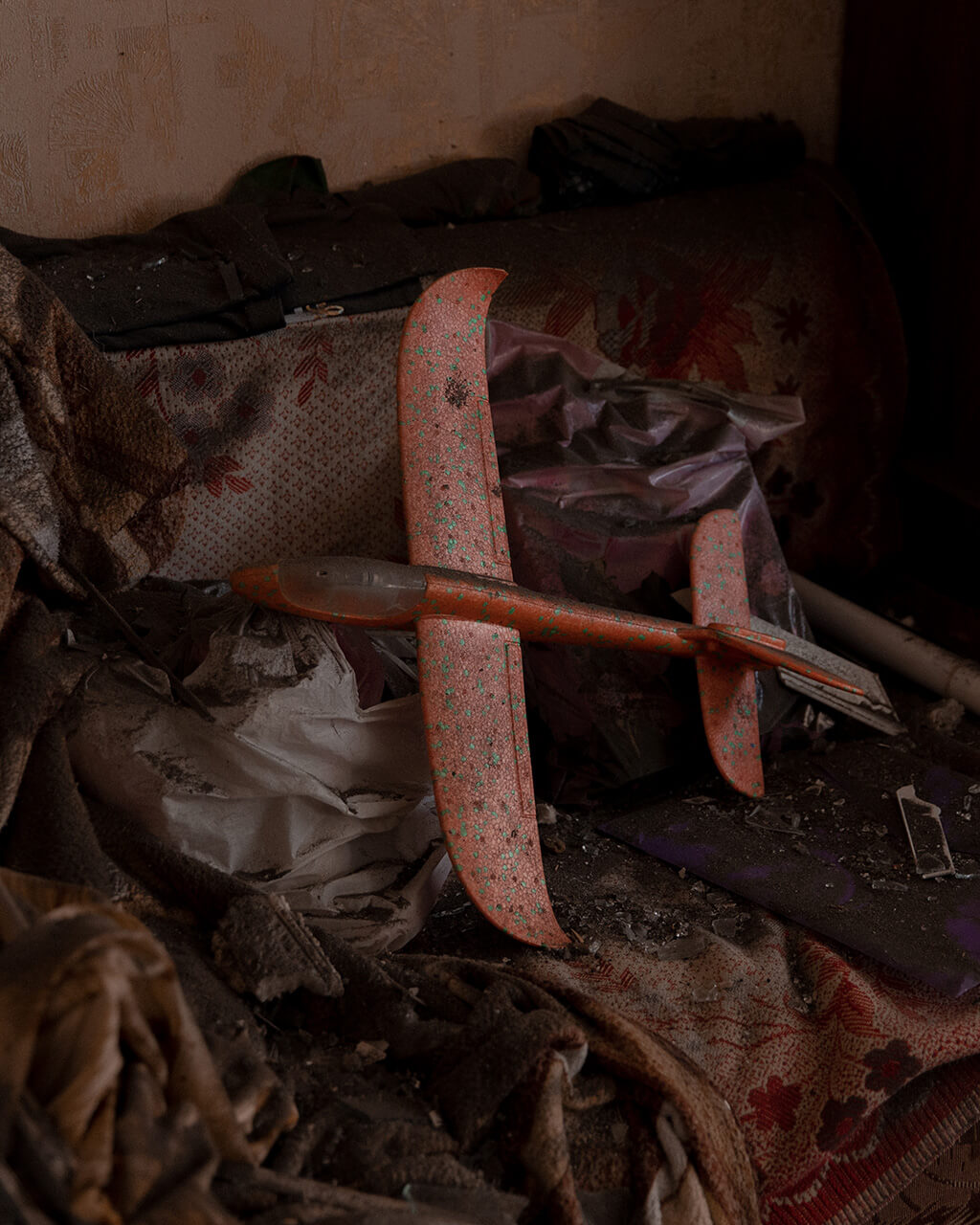
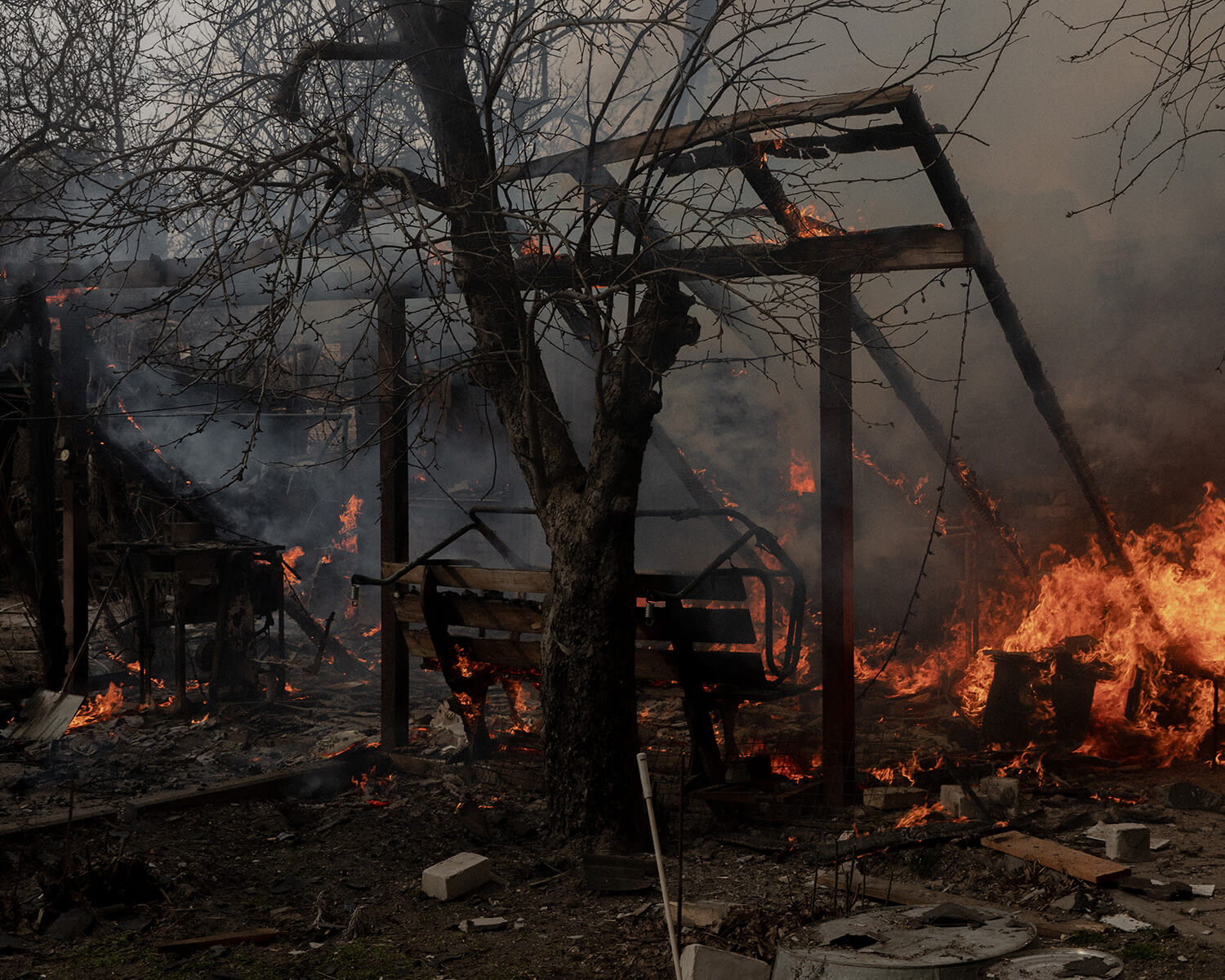
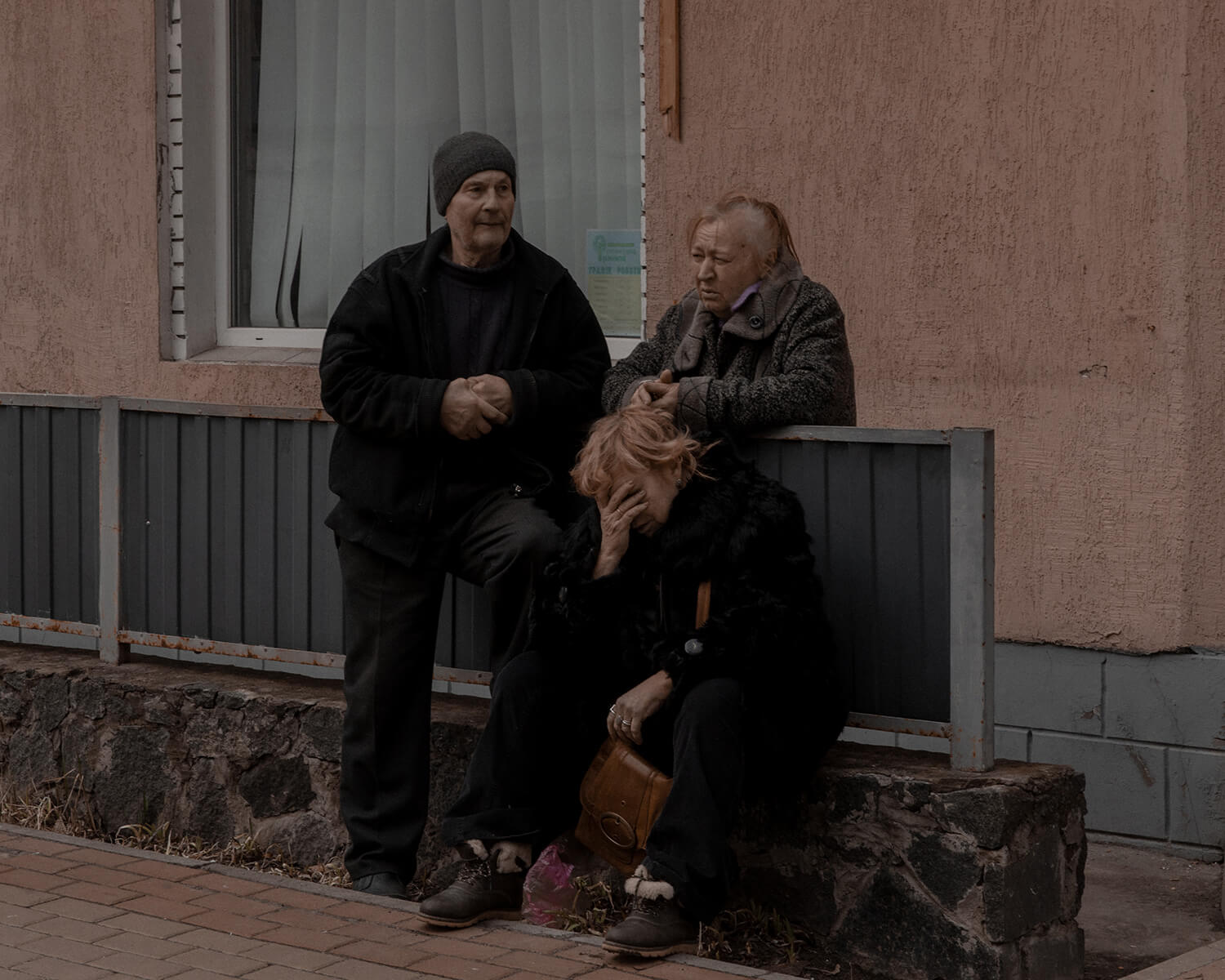
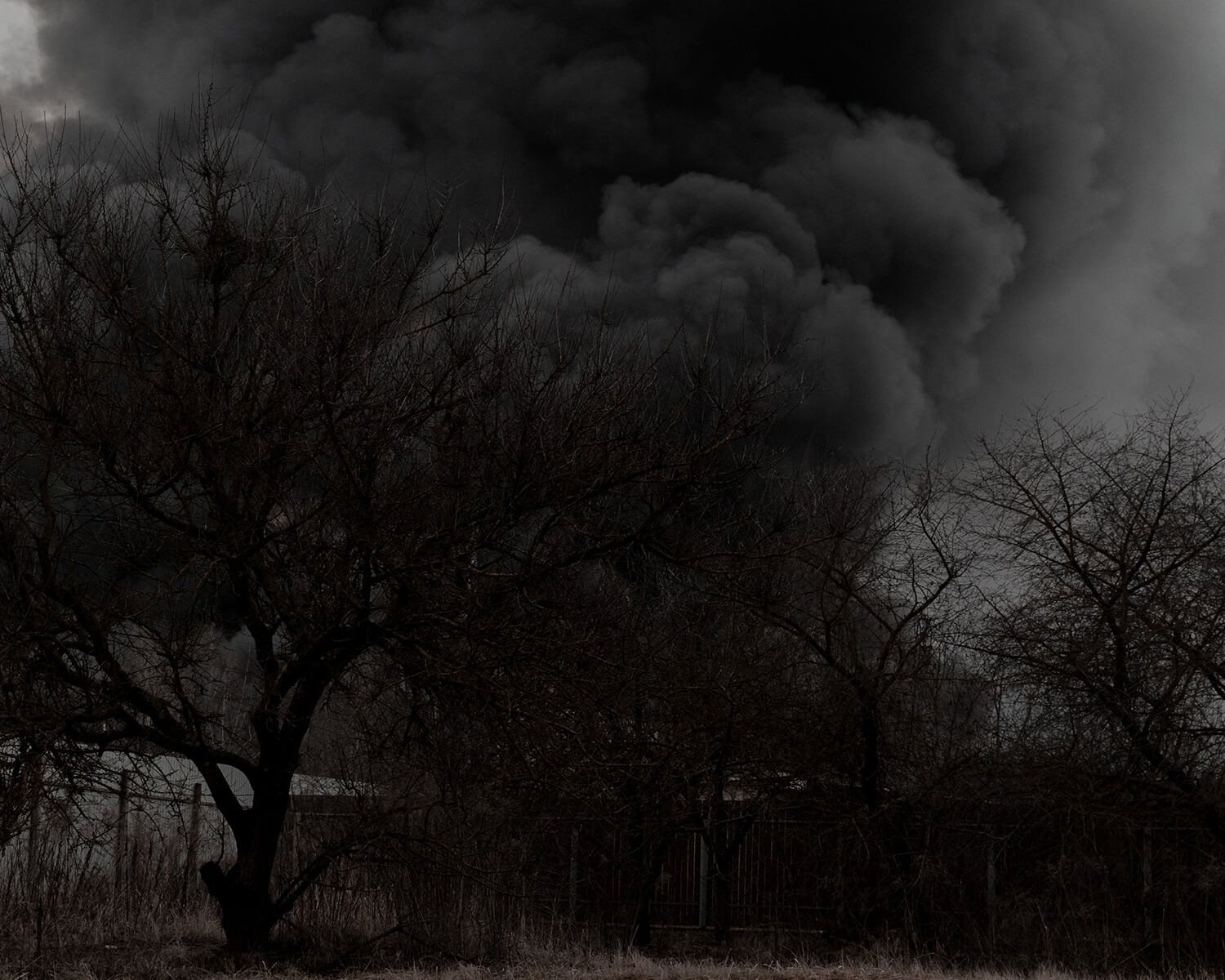
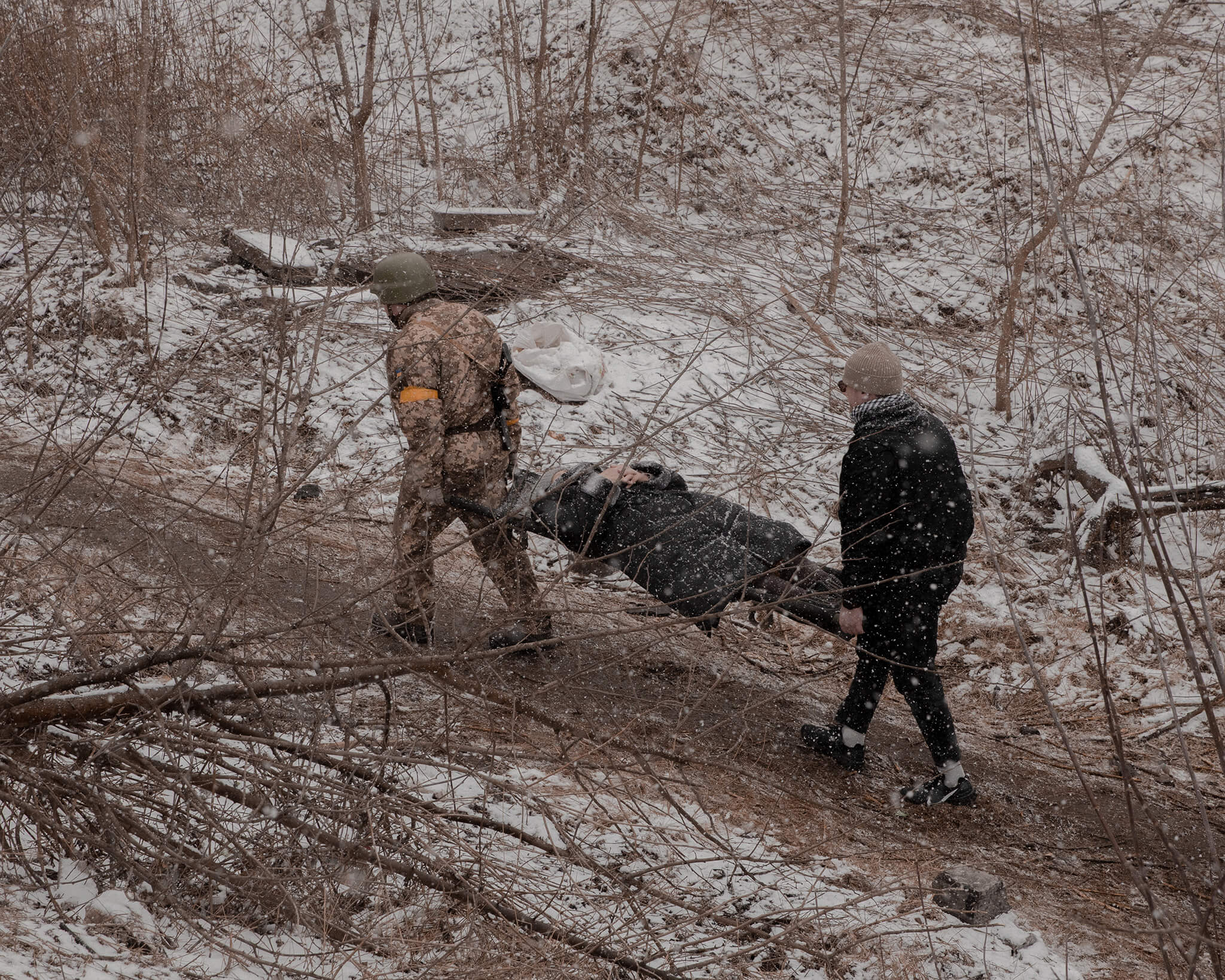
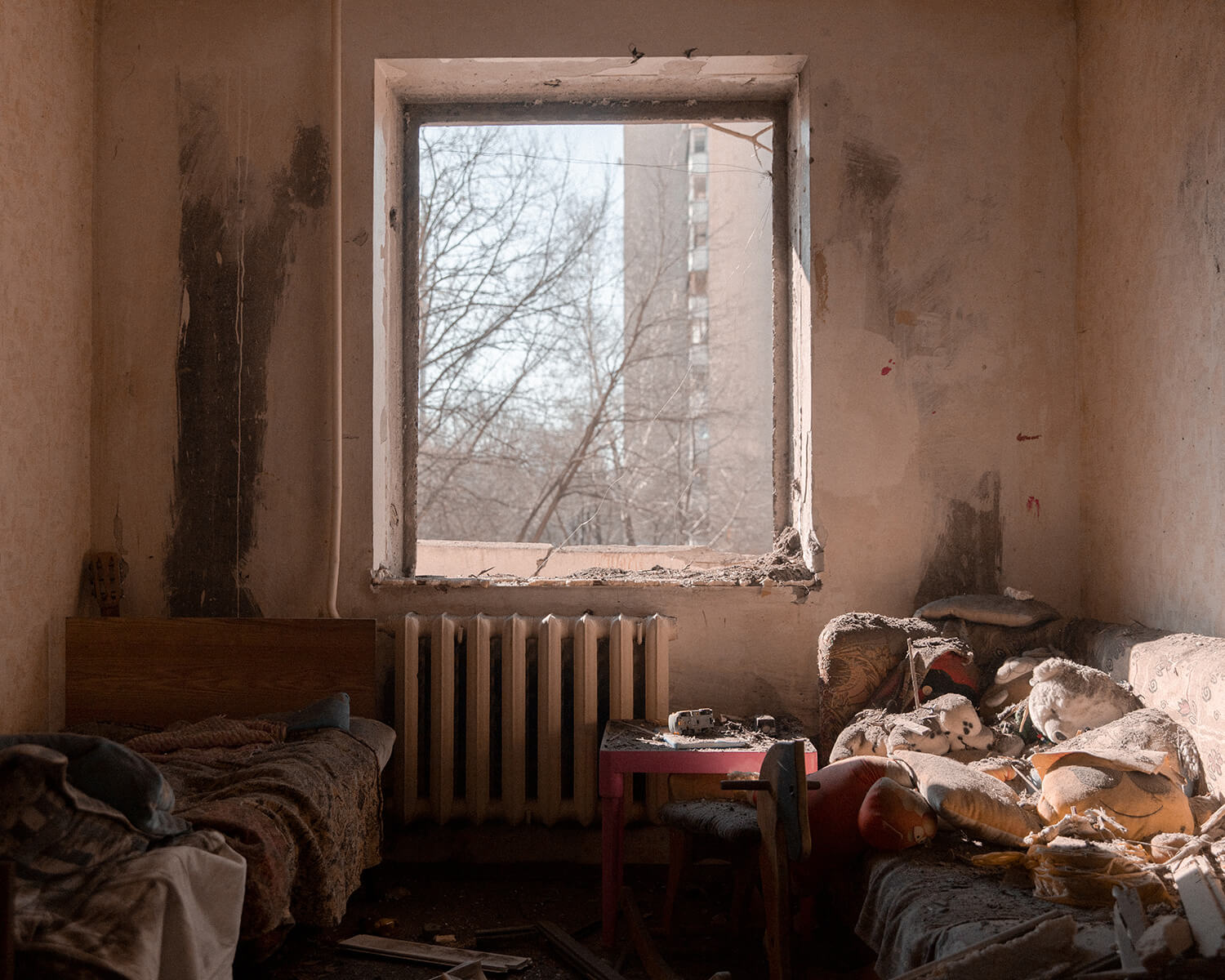
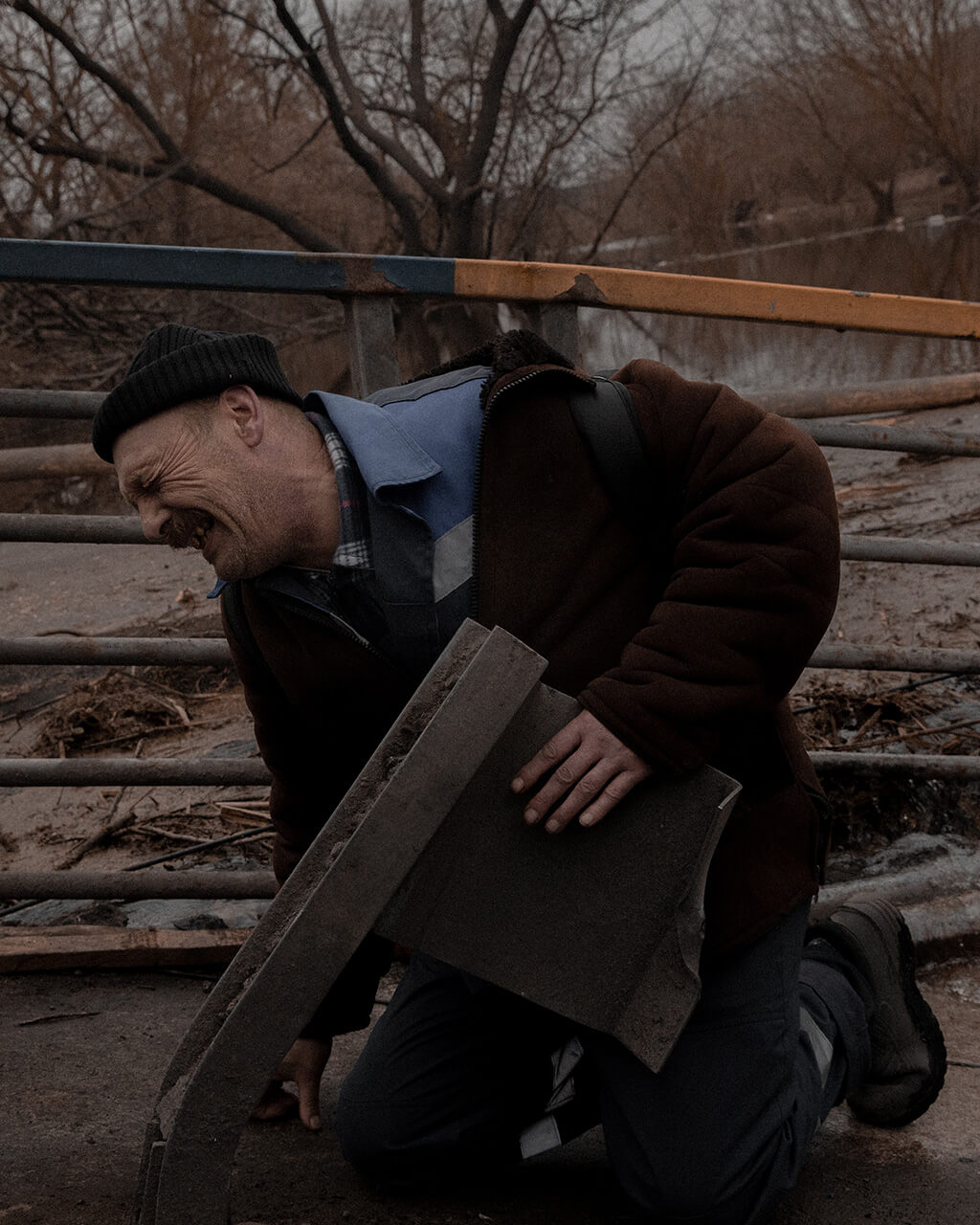
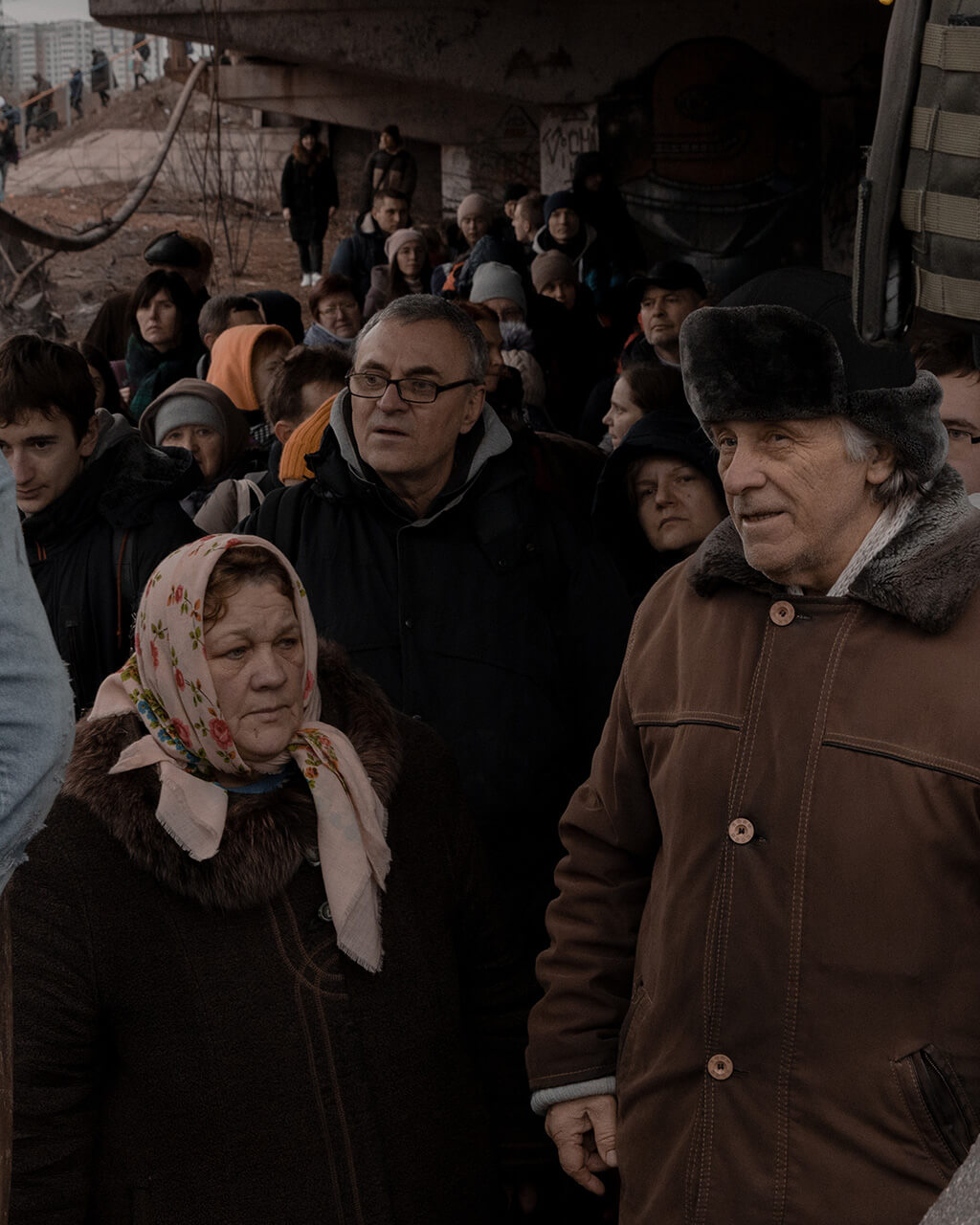
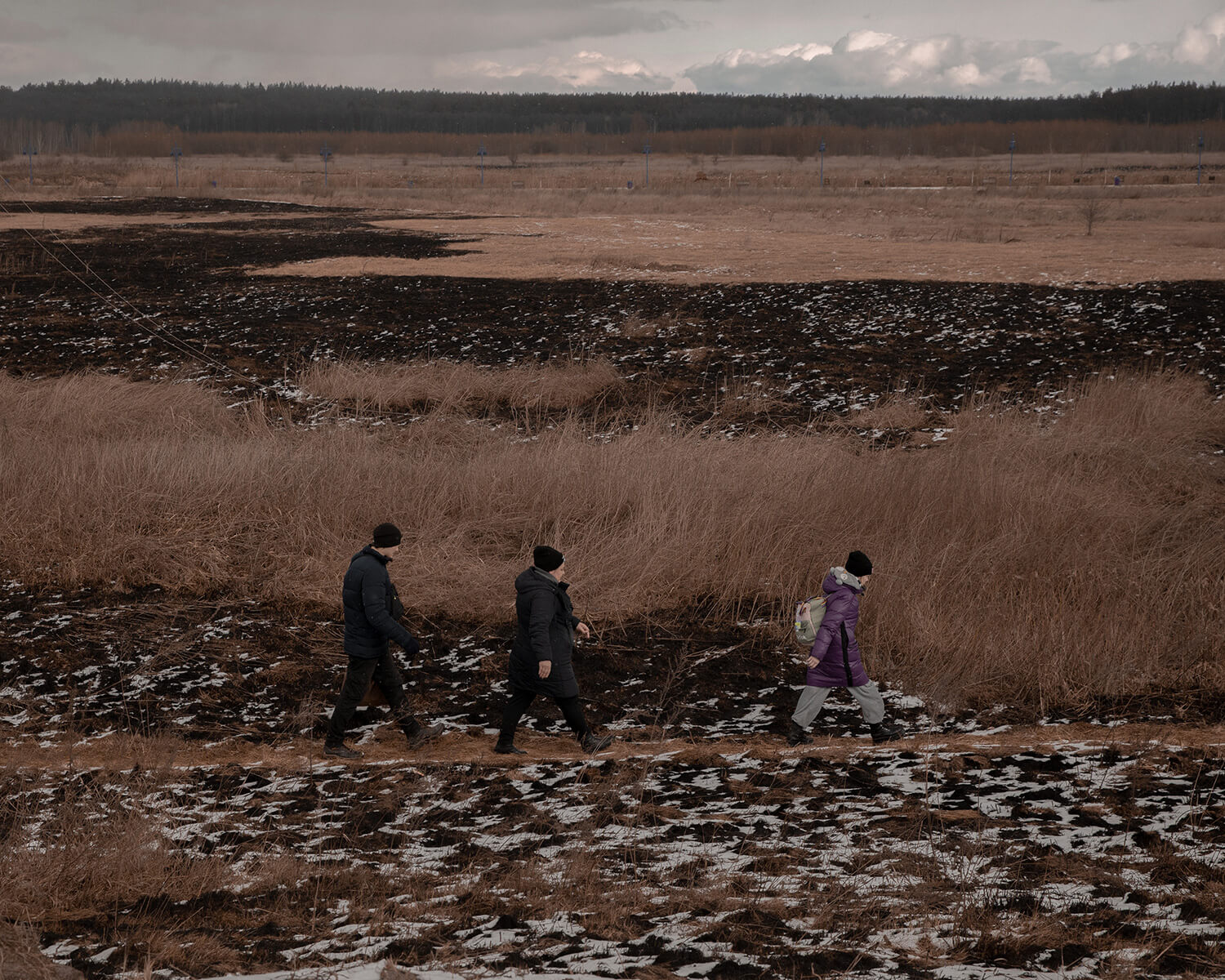
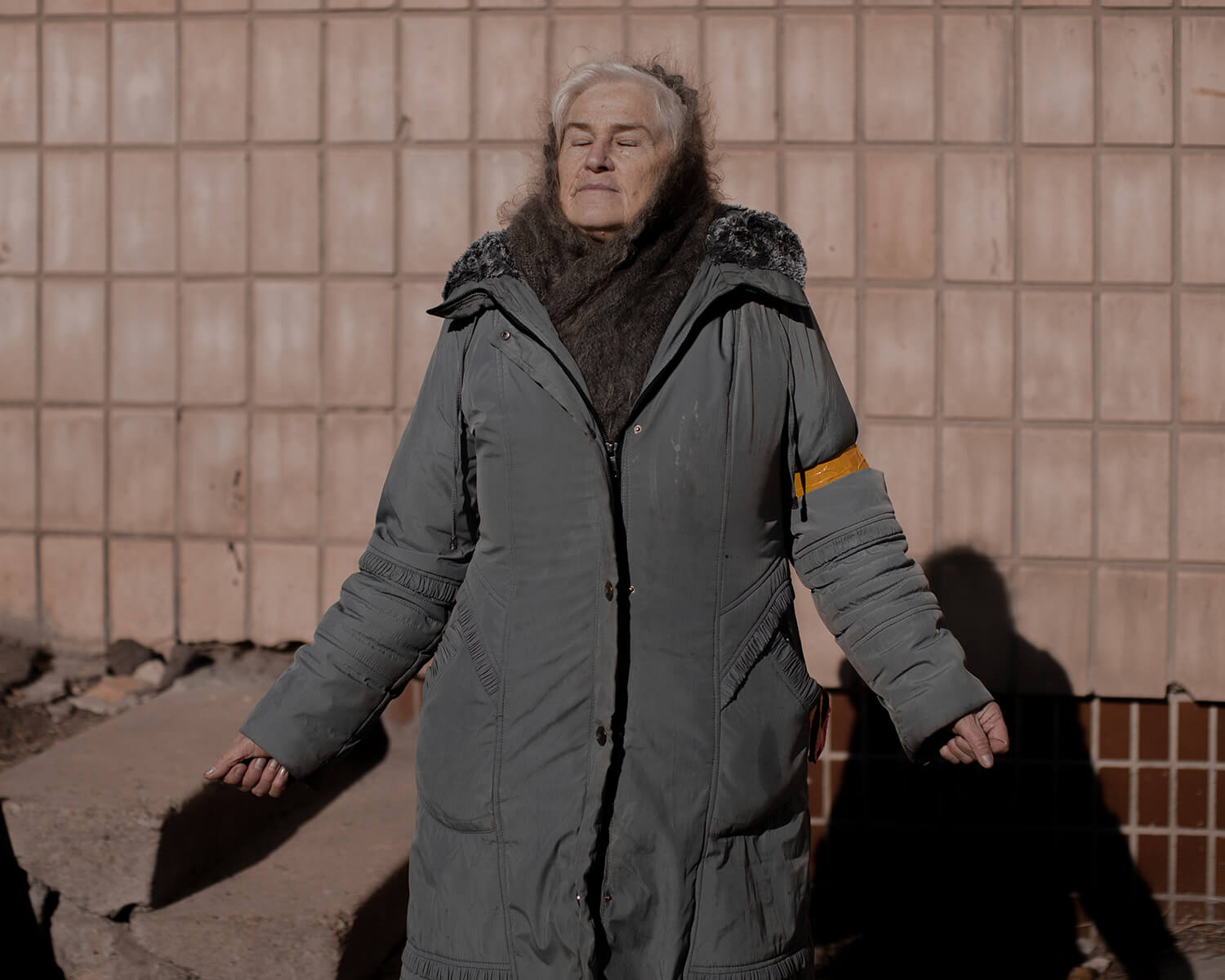
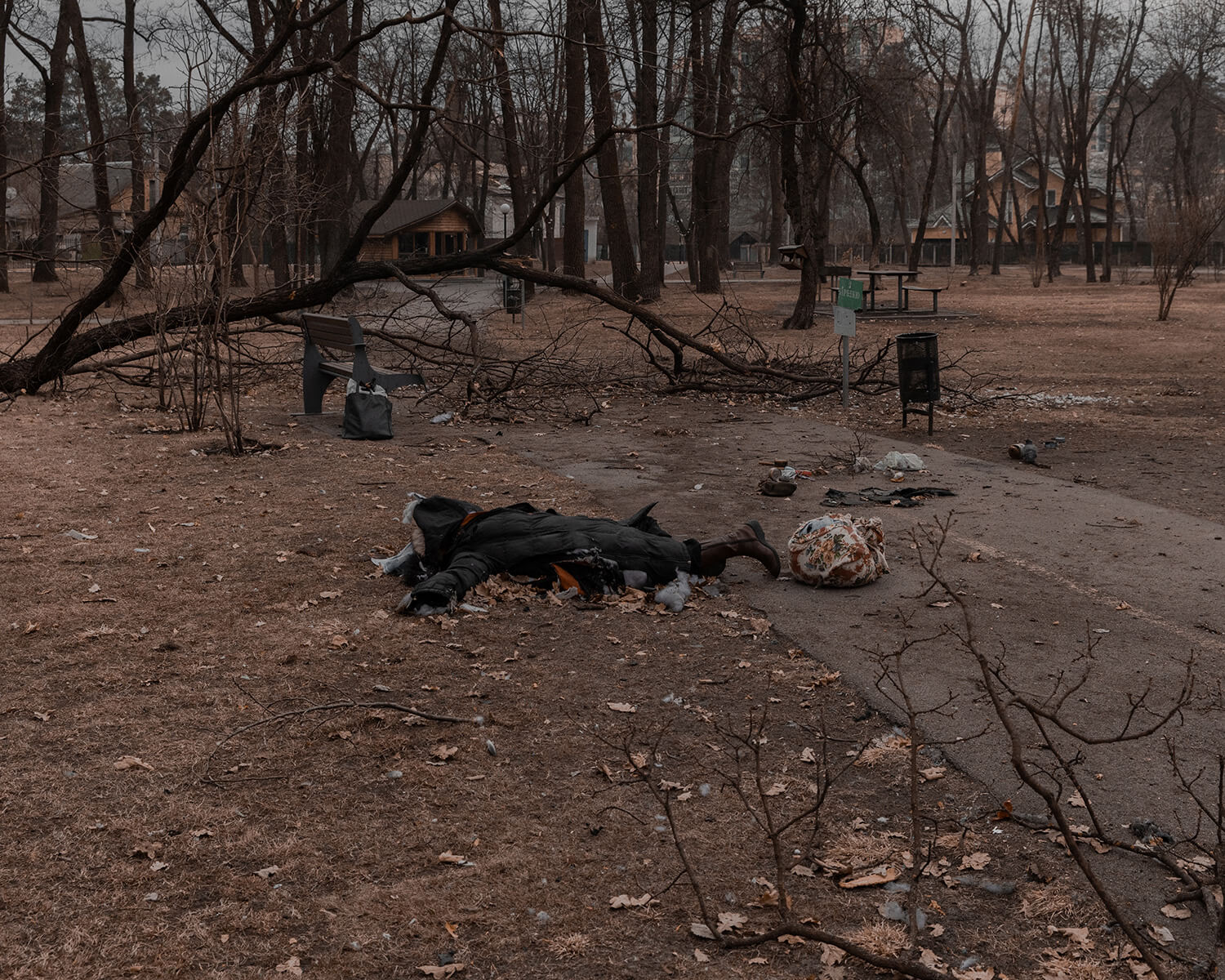
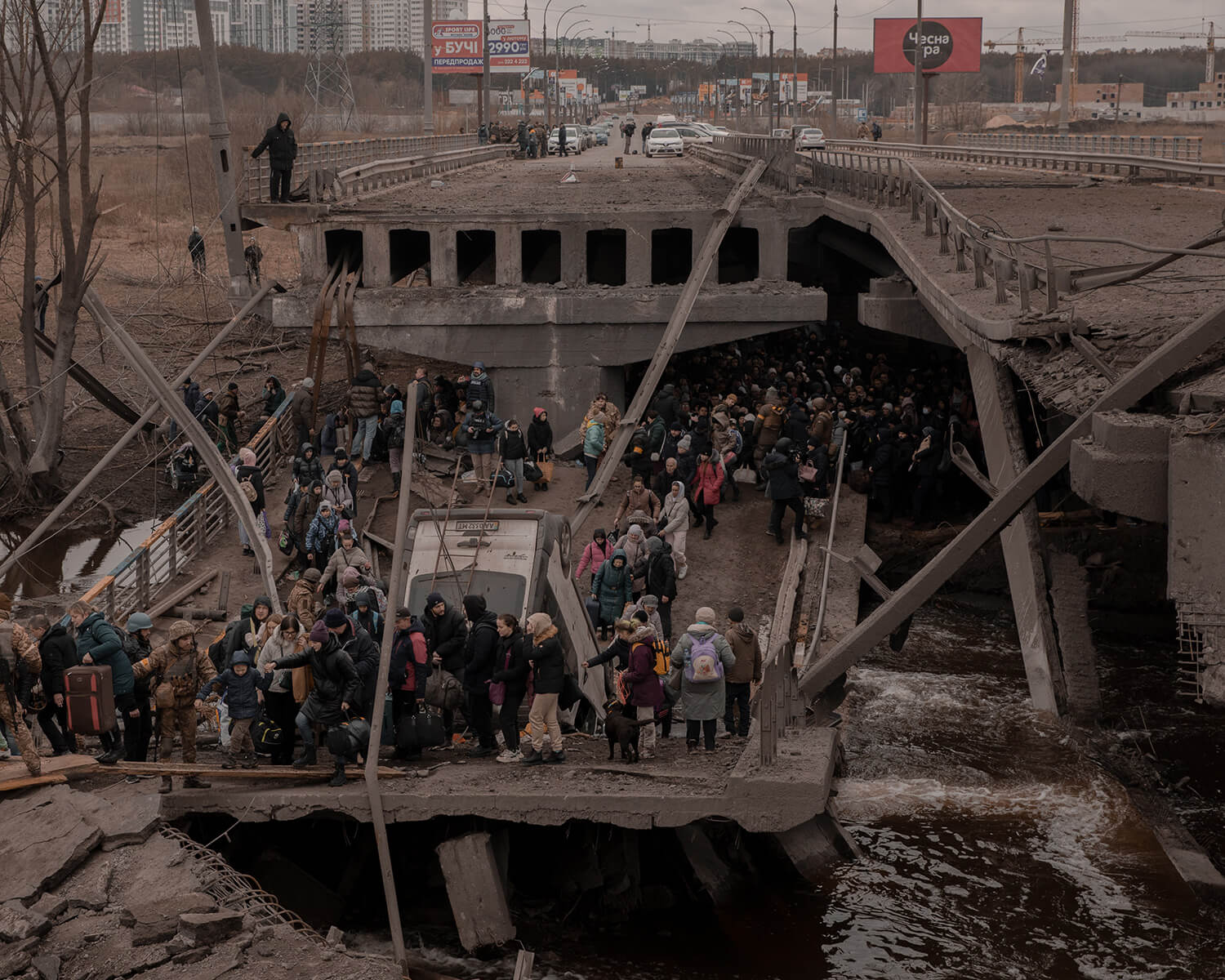
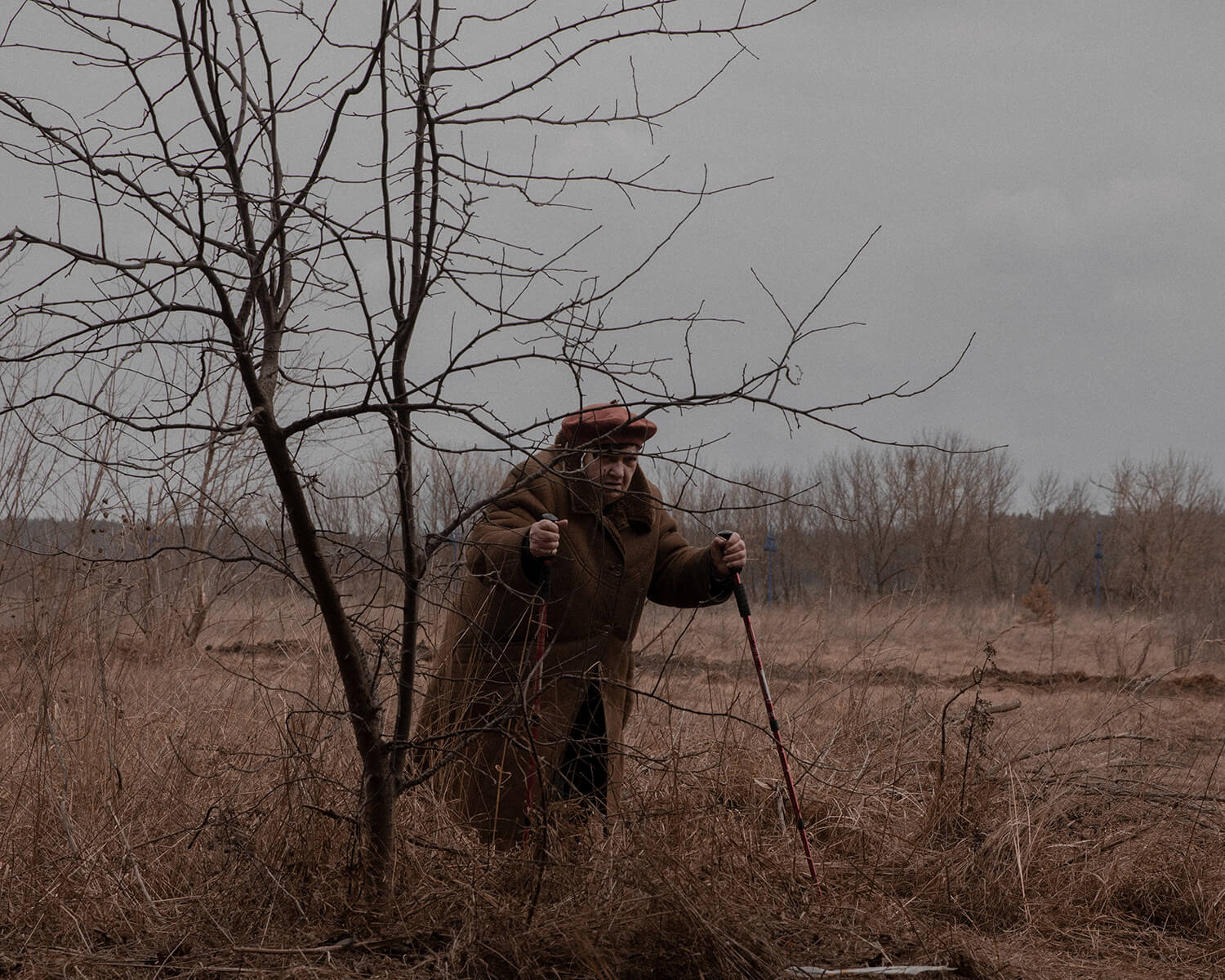
She is younger than my grandma, but older than my mom. She could be a distant relative, an aunt, a sister-in-law, a widow... Jadwiga, Krysia, Danka, any other sort of name we hear at christenings or wakes, then see signed at the bottom of holiday greetings cards – carefully calligraphed by hands which refuse to shake.
Wearing a brown sheepskin coat and ginger-coloured beret, she looks just like all the other women who spend years perched over their window sills, fanning themselves with crossword puzzles and mumbling disapprovingly at teenagers kissing right under their noses.
They descend down the stairs from their ground or first floor apartments carefully, hands glued to the railings, huffing and puffing as they focus on each step, to feed stray cats using leftovers contained in old margarine boxes (more identical boxes waiting in line on the fridge, the lettering on the eldest containers faded by the August sun). She keeps poking those nordic walking sticks into rusty grasses – I know the trick: my own grandma, before her legs finally refused to work, also used sticks to get about on, pretending to be an active, elderly lady. This woman is younger, and maybe purchased those sticks seduced by visions of herself becoming lighter, fitter, suntanned even. Perhaps they don't belong to her, she only grabbed them without giving it a second thought, the way others in similar circumstances grab skateboards, wedding dresses and schoolbooks. Reportedly, it is said, of course.
Now those sticks are coming in handy, helping her find solid ground in all those winter wastelands, uneven soil ready to twist ankles, rusted fencing sharp enough to cut feet, overgrown ditches ready to swallow winter boots – the traps which make our bodies too slow, too weak, too frozen to flee fast enough for safety.
I cannot tear my eyes from her image. Maybe it is those walking sticks or the fact she is so very alone? A sense of stillness has descended over the landscape behind her – all shades of bronze and grey, palettes so very typical of this part of the world. She hasn't even got a handbag – as if she had only popped out for a moment, not thinking of exile and all the rest: the collapsed bridge, the stunned crowds, the sobbing men, soldiers carrying baby buggies – as if all this was happening somewhere else, while she belonged to a different composition... Hello, someone got their orders mixed up: instead of “Russian invasion” we got “Babushka from the Eastern Bloc”. As if she were about to turn round, suck her teeth at some mutt, its eyes bulging, and set off for home just in time for her favourite television gameshow – Can I have the question worth three points, please... A city, five letters, on the outskirts of Kyiv, first letter “I”, last letter “n'”.
